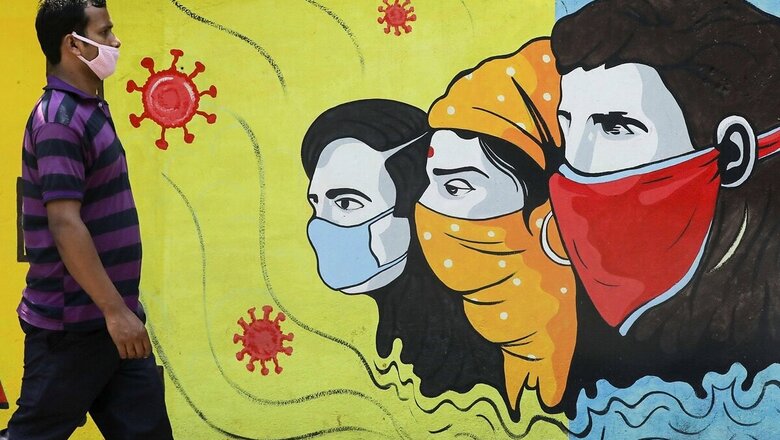
views
Amid a second wave of Covid-19 cases in India, genome sequencing by the Indian SARS-CoV-2 Consortium on Genomics (INSACOG) shows variants of concern and a novel variant in India, the government of India has said. The consortium said on Wednesday that the novel ‘double mutation variant’ of the SARS-CoV-2 was found in Maharashtra.
The ministry, however, said it could not be sufficiently established yet if these variants were behind the recent spike in COVID-19 cases in some states. It said genome sequencing by Indian SARS-CoV-2 Consortium on Genomics (INSACOG) has identified variants of concerns (VOCs) in several states and a new double mutant variant.
Genomic sequencing and epidemiological studies are continuing to further analyse the situation. The Ministry of Health had established on December 25 INSACOG which is a grouping of 10 national laboratories for carrying out genomic sequencing and analysis of circulating COVID-19 viruses, and correlating epidemiological trends with genomic variants.
Genomic variants of various viruses are a natural phenomenon and are found in almost all countries, the ministry highlighted. “Since INSACOG initiated its work, 771 variants of concerns (VOCs) have been detected in a total of 10,787 positive samples shared by states and UTs (union territories).
“These include 736 samples positive for viruses of the UK (B.1.1.7) lineage. Also,34 samples were found positive for viruses of the South African (B.1.351) lineage. One sample was found positive for viruses of the Brazilian (P.1) lineage. The samples with these VOCs have been identified in 18 states of the country,” the ministry said. Genome sequencing and analysis have been carried out on samples from arriving international travellers, contacts of those positive for VOC and community samples from most of the states at INSACOG partner laboratories, it stated.
The government also said that analysis of Covid-19 samples from Maharashtra has revealed that compared to December 2020, there has been an increase in the fraction of samples with the E484Q and L452R mutations. These mutations confer immune escape and increased infectivity. Such mutations confer immune escape and increased infectivity. These mutations have been found in about 15-20 per cent of samples and do not match any previously catalogued VOCs, the ministry said.
According to the statement by the INSACOG, among 2,032 samples from Kerala, the N440K variant that is associated with immune escape has been found in 123 samples from 11 districts. While these variants were found in samples from Telangana and Andhra Pradesh, these have also been found in other counties like UK, Australia and Singapore.
(With PTI inputs)
Read all the Latest News, Breaking News and Coronavirus News here


















Comments
0 comment